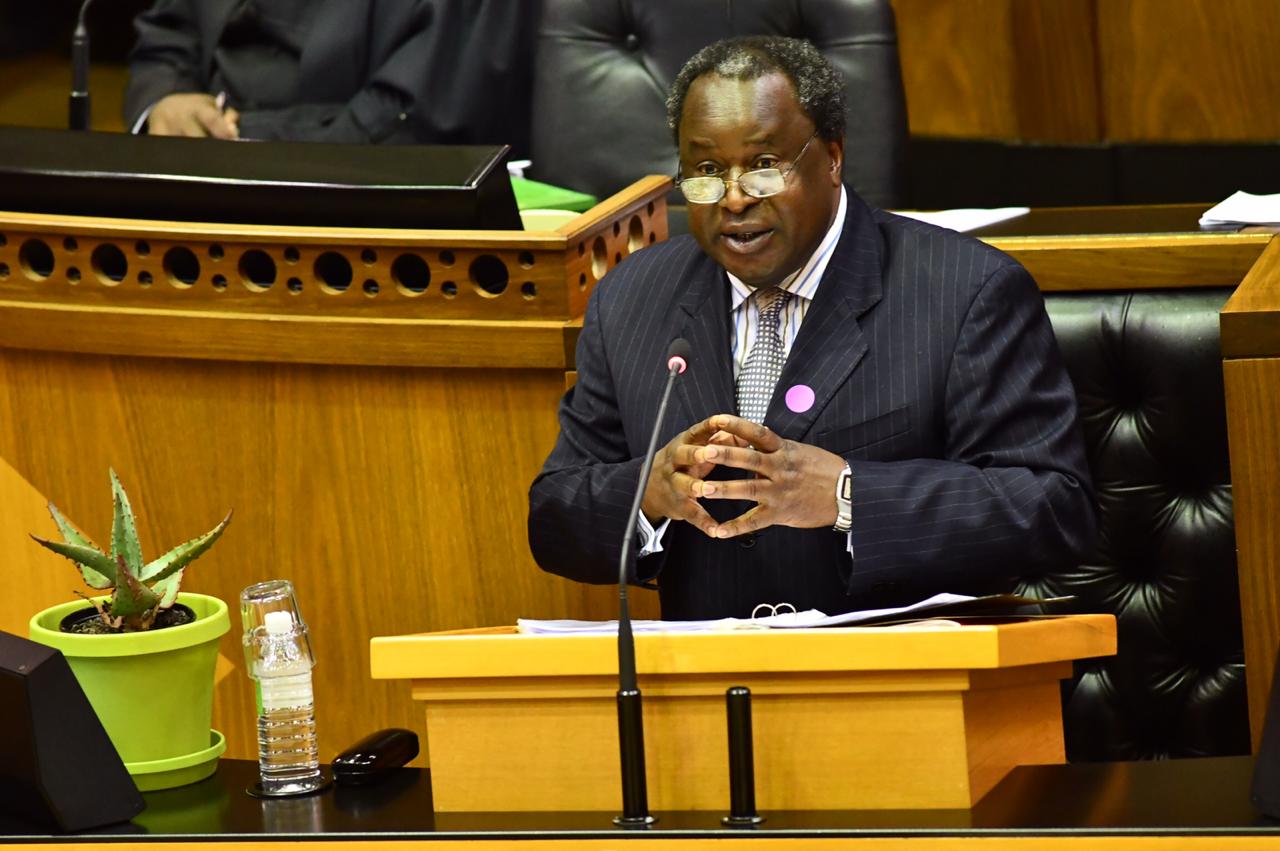Tax increase ‘not an option’ for Covid-19 vaccine funding
Selling ailing SOEs is one way of raising much-needed funds, says leading economist.

Finance Minister Tito Mboweni. Picture: GCIS
Cutting government wastage by selling off cash-guzzling state-owned enterprises (SOEs) should be among National Treasury’s options in raising funds to pay for Covid-19 vaccines – not an increase in the already overburdened household taxes, economists said on Tuesday.
The warning by experts come ahead of next month’s budget speech by Finance Minister Tito Mboweni and a bold commitment by President Cyril Ramaphosa that National Treasury would find funds to pay for the countrywide roll-out of vaccines – expected to run into billions of rands.
While Wits University academics have estimated the overall cost of all three phases of an inoculation roll-out – based on the AstraZeneca vaccine and Covax supplies, including additional nursing costs – to total R8.6 billion, economist Mike Schussler put the figure at between R15 billion and R20 billion.
As South Africa is said to owe R4 trillion from borrowings, National Treasury director-general Dondo Mogajane has listed some options available to government in funding the vaccines. These included:
- Raising taxes;
- More borrowing from the market – further increasing the country’s deficit; and
- Reprioritisation of government’s departmental budgets.
Opposed to the raising of household taxes, Schussler said: “When we look at the pandemic and the effects of the lockdown, along with load shedding, this is not an economy that can afford tax hikes.
“We can either do the higher taxes or do a bigger deficit, which may hurt our ratings. We can also cut government
expenditure, which is hard to do at short notice.
“The other option is to sell off assets like SOEs, including tapping into gains from the spectrum auction. All around the world, airports and harbours are private.
READ MORE: Lid to come off SA wage gap
“We also still have lots of minerals and can sell mining houses 10 more years of mining rights – not a popular message among leaders in the governing party.
“Telkom is a good example of a formerly 100%-owned SOE that is now doing well,” Schussler said.
“While borrowing, let us look at selling the South African Broadcasting Corporation (SABC), and Cape Town and
Port Elizabeth airports.
“We are going to need money to rebuild the ailing [Passenger Rail Agency of South Africa]. This is a country with a very small tax base, giving very little back.
“The crisis demonstrates poor planning by government, because by last October we knew the vaccine was coming.
“National Treasury can’t be blamed because it was guided by the department of health in terms of vaccine quantity and price.”
University of Johannesburg professor in the School of Economics Peter Bauer said: “We are already stretched to maximum at the moment, having lost a lot of jobs during 2020.
“Businesses have been put under pressure and we have downgraded the economy in terms of productivity and output.
“Raising taxes is restrictive to the economy, instead of stimulating it,” Schussler said.
ALSO READ: Economists: No more stimulus at edge of fiscal cliff
“Vaccine aside, an additional tax is going to be a restrictive economic policy. The household tax burden in SA is already high.”
Organisation Undoing Tax Abuse (Outa) blamed poor leadership, corruption and excessive expenditure on failed SOEs during the Jacob Zuma presidency for South Africa having exhausted its emergency reserves.
“This has given rise to excessive tax hikes and [value-added tax] increases over the past few years to finance the state’s affairs – and all of this happened long before the arrival of the Covid-19 pandemic,” said Outa chief executive Wayne Duvenage.
“How is society expected to take government seriously when, on one hand it plans to bail out a failed state airline with more than R15 billion, while crying out for tax increases to vaccinate the nation and bring an end to the pandemic in South Africa?”
Despite a R500 billion Covid-19 package announced last year and a $4.3 billion (about R64 billion) loan from the International Monetary Fund, South Africa has already been forced to halt funding coronavirus grants for the unemployed.
– brians@citizen.co.za
READ NEXT: Petrol heading for R20 per litre?
For more news your way, download The Citizen’s app for iOS and Android.
For more news your way
Download our app and read this and other great stories on the move. Available for Android and iOS.









